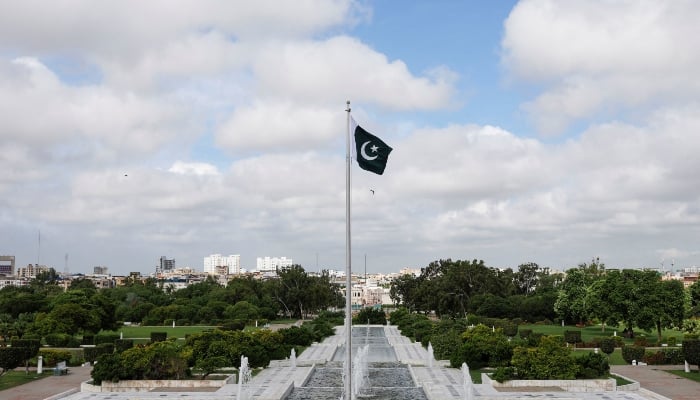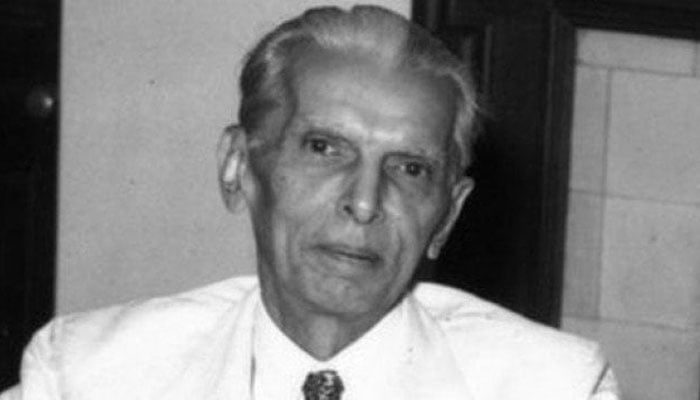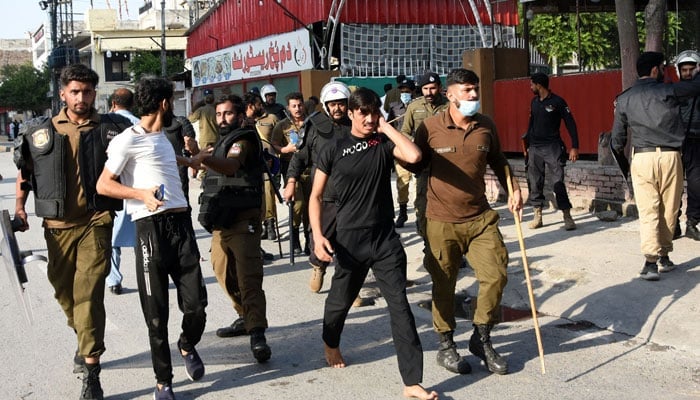Decoding military trials
Phenomenon of military trials of civilians is not unique to Pakistan specially when judicial oversight is provided

Military tribunals have long been utilised to decide cases involving civilians in many nations, particularly during periods such as the First and Second World Wars, as well as across ancient, medieval, post-colonial, and contemporary eras.
Civilians are occasionally and under special circumstances subject to military laws in a number of countries, including Pakistan, Argentina, Turkey, Thailand, China, Indonesia, Kuwait, Sri Lanka, Mali, Lebanon, Malaysia, Russia, Iran, India, Cuba, Djibouti, Eritrea, Kenya, Bahrain, Chile, Peru, Mexico, Philippines, Yemen, Bangladesh, Iraq, and Saudi Arabia. However, these nations have distinct legal systems and procedures compared to Pakistan.
Therefore, the phenomenon of military trials of civilians is not unique to Pakistan, especially when judicial oversight is provided against such sentences through the constitutional jurisdiction of the high courts and the Supreme Court of Pakistan.
The first laws establishing military tribunals to discipline Pakistani military personnel were the Pakistan Army Act of 1952, the Pakistan Air Force Act of 1953, and the Pakistan Navy Ordinance of 1961.
Nonetheless, certain clauses and situations allow civilians to also fall under the purview of military law. The Defence Services Laws Amendment Ordinance, 1967 (3 of 1967), made significant changes to Sections 2(d)(1) and 2(d)(2) of the Pakistan Army Act and the Official Secrets Act, 1923.
As a result, civilians accused of offences such as attempting to deceive military personnel out of their duties or committing crimes under the Official Secrets Act, 1923, in connection with defence establishments, arsenals, or military affairs, could be tried under military law.
However, such trials require federal government authorisation under the Army Act of 1952, and military courts must rigorously follow the standard procedures outlined in the Criminal Procedure Code (CrPC) and the Qanun-e-Shahadat Order, 1984.
In Brig (retd) F B Ali’s case, the SC, for the first time, thoroughly examined the legality and constitutionality of civilian trials by military courts. It concluded that a civilian ordinarily subject to the nation’s ordinary laws could be tried by a military court if they committed a crime under the Official Secrets Act, 1923, and the Pakistan Army Act.
The court carefully reviewed Ordinance No 3 of 1967 and the amendments made to the Pakistan Army Act, considering the fundamental rights protected under the constitution of Pakistan. It determined that such trials did not violate due process, the concept of a fair trial, or any fundamental rights granted under the Constitution.
In Mushtaq Ahmad v Secretary Ministry of Defence (PLD 2007 SC 405), the SC reaffirmed the principles established in the F B Ali case. The court held that if a civilian was found guilty of attempting to seduce or seducing a member of the Pakistani armed forces from their allegiance to the government or violating the Official Secrets Act, 1923, they would not be punished under Section 131 of the Pakistan Penal Code.
Instead, they would be tried under the provisions of the Pakistan Army Act, 1952.
The 21st Amendment, passed unanimously by the parliament of Pakistan in 2015 following the Army Public School attack, further reiterated the provisions for military trials of civilians under specific circumstances.
This amendment, along with laws like the Protection of Pakistan Act, 2014, introduced significant changes to the Pakistan Army Act, Pakistan Air Force Act, and Pakistan Navy Ordinance to address exceptional situations related to terrorism and national security.
The SC, in its majority verdict, upheld the constitutional validity of the 21st Amendment and related laws, ruling that parliament was within its rights to enact these provisions under Article 239 of the Constitution.
In the 1995 Sahida Abbasi case and later in Said Zaman Khan v Federation of Pakistan (2017 SCMR 1249), the SC reiterated that civilians who engage in acts against the Pakistan Army, such as participating in attacks, could be tried under the Pakistan Army Act due to the provisions of Section 59(4).
The court declared that the Army Act could apply to civilians under specific circumstances and noted that the fundamental right to a fair trial under Article 10-A of the Constitution was not violated by such trials.
In its 2015 judgment on the 21st Amendment, the court further emphasised that civilian trials in military courts did not contravene Article 10-A or other constitutional rights.
Since 1972, the military courts in Pakistan have tried 1875 civilians on commission of offences under the Pakistan Army Act and the Official Secrets Act. Of those, 180 civilians were tried by the military courts from 2018 to 2022 during the PTI government’s tenure.
Many of these convictions have been challenged before the superior courts, and some cases remain pending. However, neither parliament nor the SC has revoked or struck down the 1967 amendments to the Pakistan Army Act. The SC’s October 23, 2023, judgment regarding these amendments was suspended by its appellate bench in December 2023, leaving the amendments intact.
It is noteworthy that the trial of civilians by military courts on violations of military laws has rarely been a subject of controversy in Pakistan since 1975. Political parties and their leaders have often supported such trials in military courts when necessary. No foreign government has previously raised concerns about these military trials under the Pakistan Army Act, 1952. After a Field General Court Martial (FGCM) issues a judgment, the accused has the right to appeal under the Pakistan Army Act.
Aggrieved individuals can then challenge the sentence before a high court under Article 199 of the Constitution and subsequently before the SC under Article 185. A final review can be sought under Article 188 of the Constitution. While the existing legal framework allows for the trial of civilians under military laws, there is an urgent need for judicial reforms to strengthen the regular criminal justice system.
Recent statements by the US, EU and the UK’s Foreign Office criticising the military trials of civilians in Pakistan, particularly after the announcement of sentences for 25 individuals following the SC’s December 13, 2024, order, appear to be unwarranted. These remarks seem to be aimed at public optics and constitute interference in Pakistan’s internal affairs. Pakistan’s constitution and laws have permitted such trials since 1967.
The SC, in its 1975 judgment and subsequent rulings, has thoroughly examined and addressed these concerns. It consistently held that military trials of civilians under the Pakistan Army Act, 1952, and the Official Secrets Act, 1923, are not violations of fundamental rights, due process, or transparency, nor do they contravene the concept of a fair trial.
The SC serves as the ultimate arbiter in the country’s constitutional and judicial system. The issue of civilian trials by military courts is still pending before the SC, with a final verdict expected in January 2025. This decision will address all constitutional and legal aspects and will be binding on all state institutions.
Premature statements criticising these trials, while the matter remains sub judice, are unwarranted. Any sentences recently announced by military courts will also be subject to the SC’s final decision.
While Pakistan’s legal framework permits civilian trials under military laws in specific circumstances, it is essential to focus on judicial reforms to strengthen the country’s regular criminal justice system. Such reforms would ensure the efficient and transparent administration of justice while maintaining public confidence in the rule of law.
The writer is a practising advocate of the Supreme Court of Pakistan with 25 years of legal standing. He can be reached at: [email protected]
Disclaimer: The viewpoints expressed in this piece are the writer’s own and don’t necessarily reflect Geo.tv’s editorial policy.
Originally published in The News







